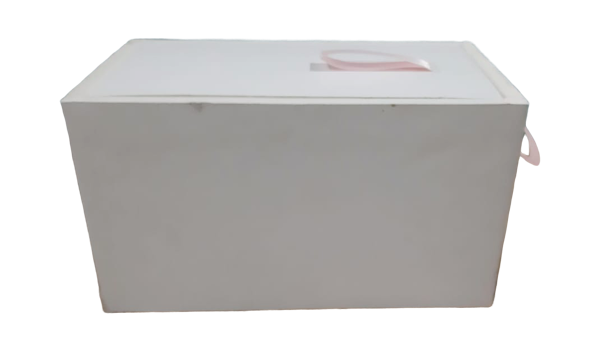The PUR shippers market is undergoing transformative shifts as industry players adopt various strategic moves to strengthen their position, tap into new opportunities, and stay ahead of competition. The demand for temperature-sensitive packaging solutions is growing, and companies are taking significant actions to capitalize on this expansion. This article explores key strategic moves within the PUR shippers market that aim to address evolving customer needs, technological advancements, and sustainability concerns.

1. Mergers and Acquisitions to Expand Market Presence
- Companies within the PUR shippers market are increasingly focusing on mergers and acquisitions (M&A) to expand their market footprint and diversify their product portfolios.
- Acquiring regional players allows global companies to penetrate emerging markets, such as Asia-Pacific, Latin America, and the Middle East.
- Strategic M&A also helps in gaining access to advanced technologies and manufacturing capabilities that improve the efficiency of PUR shippers.
- By consolidating resources, companies can achieve economies of scale, reduce operational costs, and enhance their market share in a competitive environment.
2. Innovation in Sustainable Packaging Solutions
- Sustainability is a key concern for the PUR shippers market, with companies prioritizing eco-friendly innovations.
- Manufacturers are investing in the development of recyclable and reusable PUR shippers to meet increasing demand for environmentally friendly packaging solutions.
- Research into bio-based polyurethanes and other sustainable materials is helping to minimize the carbon footprint of PUR shippers.
- Companies are also focusing on reducing packaging waste by introducing compact and efficient designs, which align with global environmental regulations and consumer preferences.
3. Strategic Partnerships with Logistics Providers
- Many companies in the PUR shippers market are forming strategic partnerships with logistics and transportation service providers.
- Collaborations with third-party logistics companies help ensure the timely and safe delivery of temperature-sensitive products while leveraging the expertise of logistics professionals.
- Partnerships also enable improved supply chain integration, offering customers faster and more reliable services.
- These collaborations enhance operational efficiency, reduce lead times, and lower shipping costs for end-users, creating a more seamless cold chain transportation process.
4. Focus on Technological Advancements and IoT Integration
- The increasing importance of real-time monitoring and data-driven insights has led companies in the PUR shippers market to invest in technological advancements.
- IoT-enabled PUR shippers equipped with sensors allow users to track temperature, humidity, and location during transit, ensuring the integrity of sensitive goods.
- The use of cloud-based platforms for monitoring and managing shipments adds an extra layer of transparency and accountability in the supply chain.
- Companies are also integrating artificial intelligence (AI) and machine learning to predict potential temperature fluctuations, allowing for proactive measures to prevent spoilage or damage to products.
5. Geographic Expansion into High-Growth Markets
- To tap into the growing demand for PUR shippers in emerging markets, companies are expanding their geographic presence in regions such as Asia-Pacific, Latin America, and the Middle East.
- The rise of e-commerce, expanding healthcare and pharmaceutical sectors, and increasing awareness of temperature-sensitive logistics are contributing to the growth of the market in these regions.
- Companies are setting up manufacturing units and distribution centers in these areas to meet regional demand more efficiently and reduce shipping costs.
- Expanding into these markets also offers opportunities for businesses to develop localized products suited to the specific needs of customers in different regions.
6. Focus on Customization and Product Differentiation
- The demand for customized PUR shippers is rising, as businesses require packaging solutions tailored to their specific temperature control needs.
- Companies are offering a variety of product configurations, such as insulated containers and pallet shippers, to meet the diverse requirements of industries like pharmaceuticals, food and beverages, and biotechnology.
- Providing bespoke designs with varied insulation capabilities, dimensions, and temperature control ranges helps companies cater to niche markets and stand out in a crowded market.
- Product differentiation is key to meeting industry-specific regulatory standards, such as those required for the transportation of vaccines and biologics.
7. Cost Reduction Through Operational Efficiency
- Companies are investing in automation and advanced manufacturing technologies to improve operational efficiency and reduce production costs.
- Streamlining production processes, improving supply chain logistics, and utilizing advanced materials for insulation help businesses cut down on overhead costs and improve profit margins.
- Additionally, some companies are implementing just-in-time (JIT) manufacturing strategies to avoid excess inventory and reduce warehousing costs.
- These efforts in cost reduction make PUR shippers more affordable for a broader range of customers, from small businesses to large enterprises.
8. Leveraging Online Sales Channels and Direct Distribution
- As e-commerce continues to grow, companies in the PUR shippers market are adopting direct-to-consumer sales models.
- Leveraging online platforms allows manufacturers to reach a wider audience and build direct relationships with customers.
- These channels also enable companies to gather data on customer preferences, which can be used to improve product offerings and customer service.
- Offering easy online ordering, customized solutions, and fast delivery further enhances customer satisfaction and strengthens brand loyalty.
